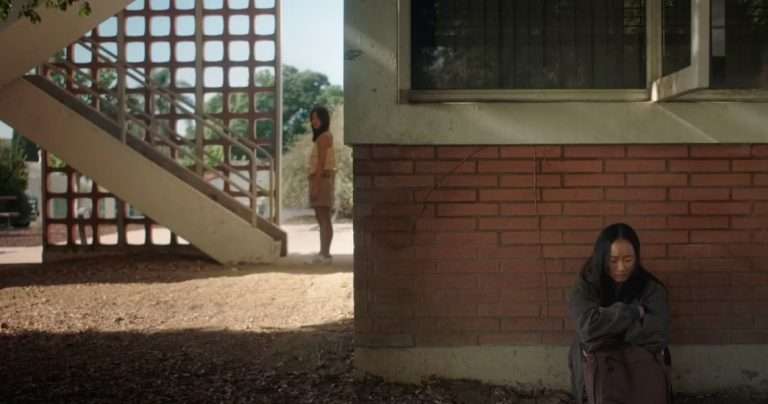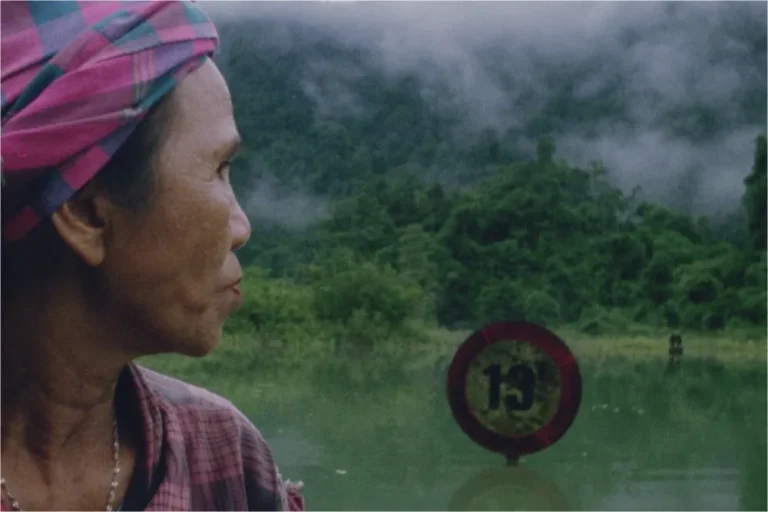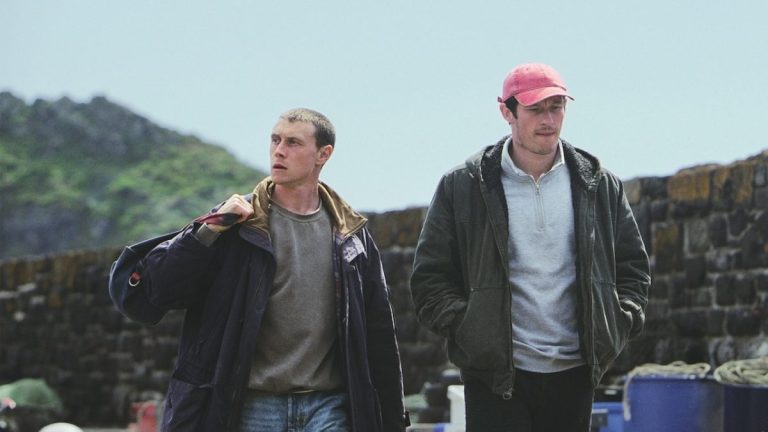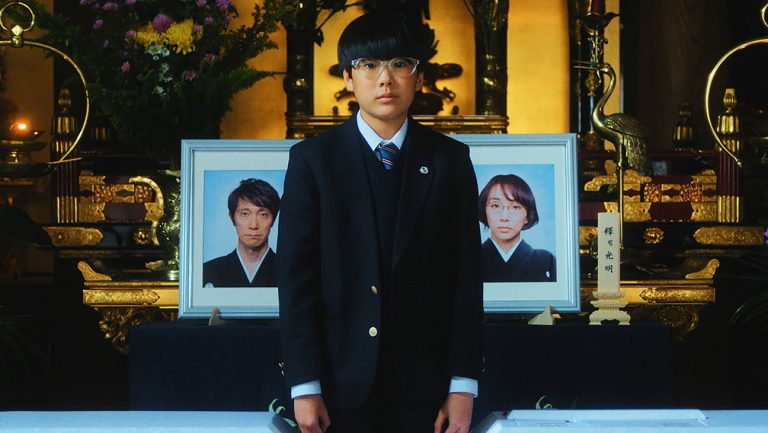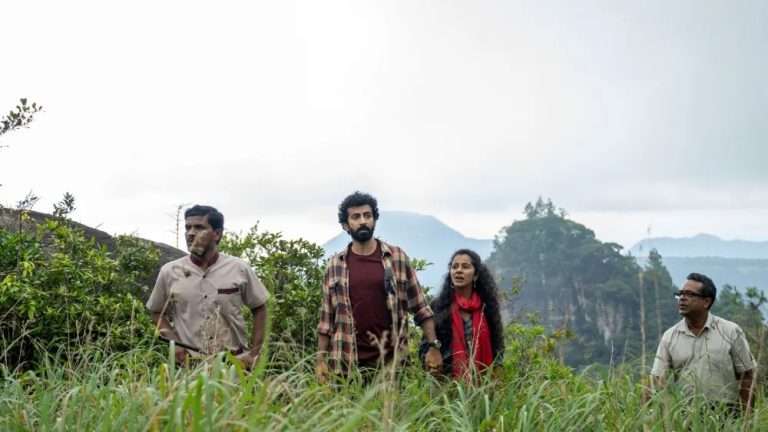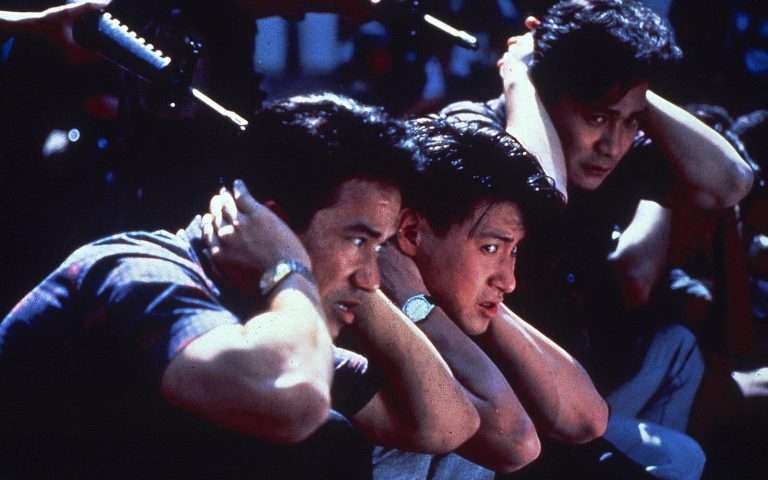Anastasiya Miroshnichenko’s “Welded Together” is a film laced with immense pain. It’s the kind of agony that stems from being stuck in a seemingly irrevocable dilemma, circumstances that feel like they are running in a punishing loop. To escape it and break the cycle demands incredible steeliness in letting go. Opening in the desolate, snowy expanse of the Belarusian village of Radost, “Welded Together” peers through the repressed anguish in the 21-year-old Katya.
She is a young welder, the lone woman in the overwhelmingly male environment of an industrial space. However, at work, her skill isn’t trumped by sexism. Neither does her youthfulness come in the way. She’s devoted to work, fully hurling herself into it, with her private life, familial tenderness existing just barely. She allows work to consume her, filling the aching void left by an absence of family.
Katya’s father died when she was a kid. Shortly after, her mother took to reckless drinking, eventually losing custodial rights over Katya. At work, Katya rarely takes a day off. When her co-workers tease her about getting married, she insists she doesn’t have the time for relationships, that she’s not interested.
On a leave day, Katya goes to the city of Brest to see her mother and her little half-sister, Amina. The mother is mostly busy with Amina’s whims and needs, not quite bothered to ask Katya how she’s been doing. However, observing her mother’s lavish attention on Amina quietly buoys Katya’s wish. Raised in social service, she is wary of the same being doled out to her half-sister. She can’t help feeling maternal and protective of Amina.
Katya finds herself increasingly drawn to thinking she can rescue her mother. She keeps hoping, putting faith in her mother’s abandonment of alcoholism. Despite carrying a lifetime of scars from a similar situation years back, when she was a kid herself, Katya chooses to chuck those and side with optimism. She does have her doubts, misgivings. Worn out by a lack of love and care within familial structures, Katya’s demeanour has taken on a brittle front. There’s so much she has endured, weathered with perseverance, adding adversity to accentuate her resilience.
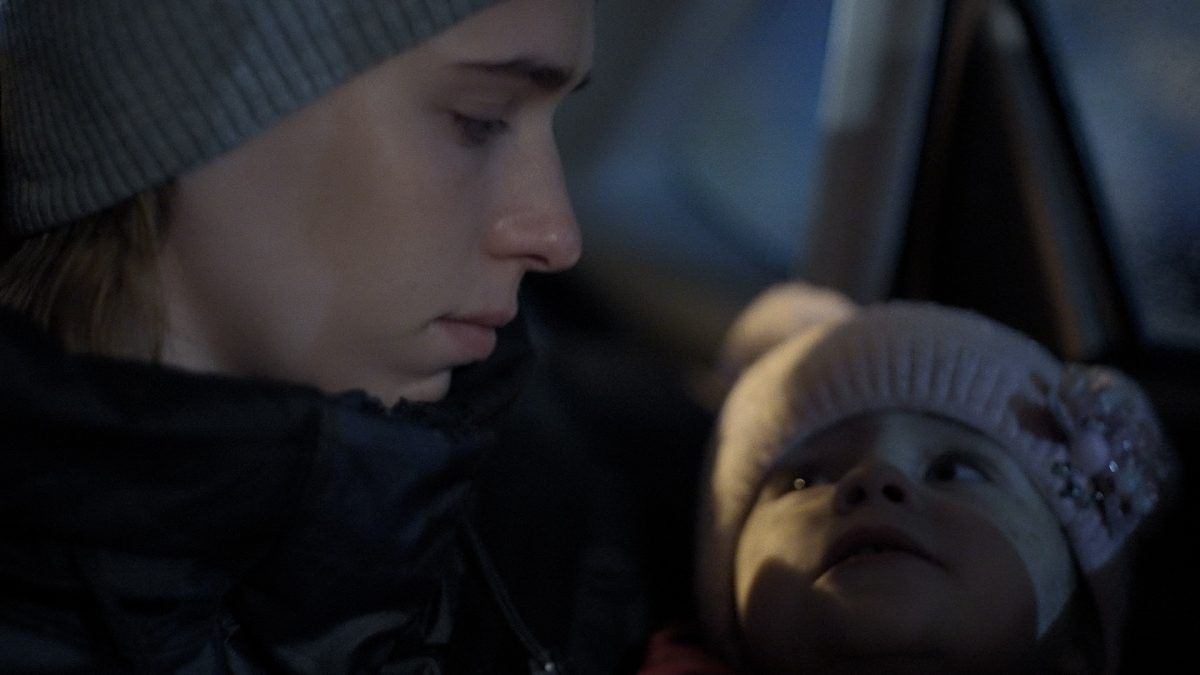
“Welded Together” leans into terrible conflicts of the soul and turns unbearably despairing. Katya grows a deep love for Amina, looking over her as much as she can. But her efforts have to ultimately confront a tipping point. There’s only so much she can do, hemmed in by structures that render her taking custody of Amina doubly tough. For her half-sister’s own good, parting becomes essential. Handing her over to social services is inevitable. Katya defers it as much as she can, opting to believe her mother is getting better.
In a moving bit, her mother emphasises she has tried all her life to be good. But how much of it has panned out for the better? Just the sheer force of Katya loving her mother can’t retrieve the latter. Katya is trapped in her mother’s orbit. It’s the vicious cycle that cages loved ones of addicts, impeding their own personal journey. Katya is urged to sever herself from the belief that she can liberate her mother from wretchedness. This is a film about the impossible faith one often places in love, even when it has long harmed them, pulled them to stasis. With the repetition of toxic behavioural patterns, one must distance oneself for their own well-being.
As much as she embraces babysitting Amina, Katya realises it’s not sustainable. “Welded Together” switches between Katya’s emotional isolation in her painful dilemma and the fulfilment and companionship her colleagues try to offer her. Miroshnichenko probes with empathy and lucid clarity Katya’s emotional landscape. How the welder strains to resurrect emotional ties gears the film’s central wounds.
Katya swings between holding onto vestiges of hope and slipping off the ground entirely. It’s a decision she has to arrive at herself, armed with conviction, the ultimate recourse is what’s best for Amina. The film examines how Katya burrows into her abscesses to gather peace and reconcile with the heaviness of the decision. This is a work of searing honesty, delivering its weary, bruised realisations with a gut punch.



